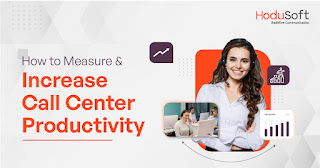5 Must-Have Call Center Software Features for Enhancing Patient Experience in Healthcare
Timely and effective communication can save lives. Delayed and poor communication can take lives.
That's the impact of communication in the contemporary healthcare sector!
If you happen to be an owner of a healthcare organization or a hospital, then it would be prudent to leverage advanced and reliable communication tools available in the market.
Some such communication tools include call and contact center software, which can automate a wide range of manual and repetitive tasks associated with making or receiving calls.
Now, when selecting the right type of call and contact center software for your healthcare organization, you need to know the top features a good call center software solution should have.
This article lists five key features a call center software must have to enhance patient experience in the healthcare sector. Read on and thank us later.
1. Advanced Call Routing
Healthcare organizations and hospitals must ensure that all incoming calls reach the right department and are attended by agents with the most appropriate skill sets and expertise to resolve patients' issues. Skill-based call routing feature does just that. It directs calls to the most appropriate agent or department based on predefined criteria such as patient needs, agent expertise, or call volume. By doing that, it minimizes wait times and ensures patients receive the best possible support.
2. Omnichannel Support
Patients today communicate through various channels, including phone, email, chat, and social media. An omnichannel support feature ensures that all interactions are seamless and consistent across platforms. This capability enables agents to follow up on previous conversations, enhancing continuity of care and improving patient satisfaction.
3. Integrated Patient Management System
A patient management system is just similar to a customer relationship management (CRM) system. The latter keeps the records of customers, the former maintains complete records of patients. A robust patient management system allows agents to access patient records, appointment histories, and preferences in real time. By leveraging advanced patient management systems, agents can provide personalized service as well as quickly address patient needs and concerns.
4. Automated Appointment Reminders
Missed appointments can be detrimental to patient care and clinic efficiency. Automated appointment reminder systems reduce no-shows by sending timely notifications via phone calls, texts, or emails. These reminders help patients manage their schedules and ensure they receive the care they need.
5. Data Analytics and Reporting
Data-driven decision-making is vital in healthcare. Call center software with robust analytics and reporting tools enables healthcare organizations to track performance metrics, patient satisfaction scores, and call volumes. It can also provide details such as call time, talk time, and hold time. Agents can track missed call details for any date. This data can inform staff training, operational improvements, and overall service strategies to enhance the patient experience.
All In All,




Comments
Post a Comment